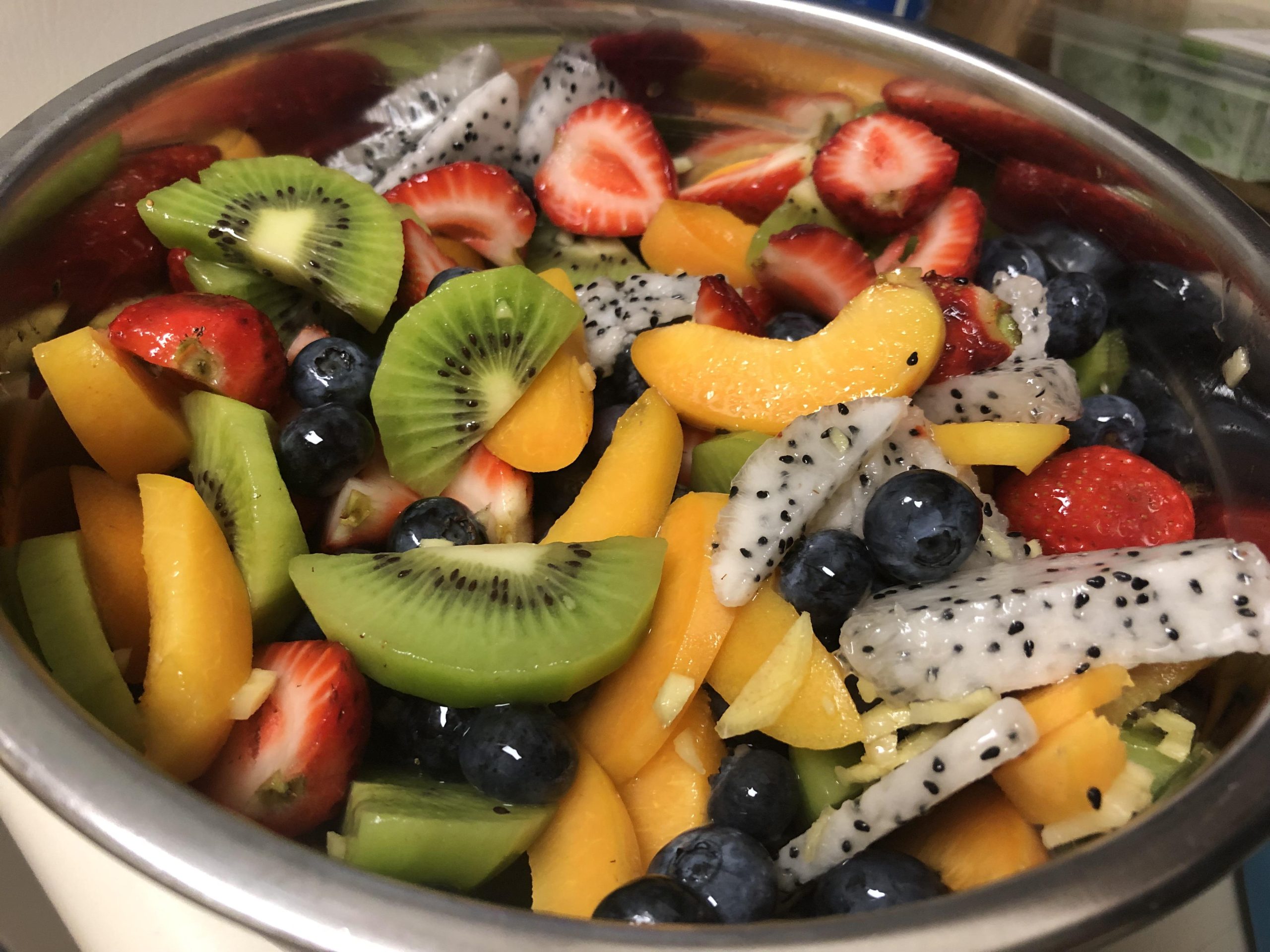
Ways to Reduce Blood Sugar Levels in the Body
High-intensity exercise

(Image/ Source: yahoo.com)
Regular exercise can not only help you reach a healthy weight, but also increase your insulin sensitivity. This means your cells use the sugar in your bloodstream more effectively. If you have issues with blood sugar, keep tabs on your blood sugar levels before and after your workout. This will help you learn how your body responds to different activities to keep your blood sugar levels from getting too high or too low.Advertisement
Eat more fiber

(Image/ Source: reddit.com)
Did you know that fiber actually slows down your sugar absorption? Fiber-rich food like fruit, vegetables and whole grains can aid blood sugar management, so it’s a good idea to up your intake. A high-fiber diet can boost your body’s ability to regulate blood sugar and minimize blood sugar low, which is good for people with type 1 diabetes.Advertisement
Cut your carb intake

(Image/ Source: reddit.com)
While we’re not suggesting you cut out carbs completely, you should definitely curb your intake of carb-heavy foods like cakes, doughnuts, and junk food. Your carb intake plays a big part in influencing your blood sugar levels, as it breaks down carbs into sugars. Try to eat whole grain carbs rather than processed ones.Advertisement
Stay hydrated

(Image/ Source: reddit.com)
Drinking water and staying hydrated is a good move for your body for multiple reasons. It can help keep your blood sugar levels in healthy ranges, and encourages your kidneys to flush out any excess sugar through your urine. It also rehydrates your blood and lowers your risk of getting diabetes, so it’s a win-win.Advertisement
Go easy on your portion sizes

(Image/ Source: reddit.com)
Are you guilty of piling your plate high at meal times? If so, you might want to work on your portion control. Regulating the amount you eat in one sitting promotes a healthy weight and blood sugar levels, and has also been shown to reduce your risk of developing type 2 diabetes. Try to measure and weigh your portions, and use small plates if you can.Advertisement
Try and manage your stress levels

(Image/ Source: reddit.com)
We know this is definitely easier said than done, but tackling your stress levels can really help your blood sugar levels too. When stressed, your body secretes hormones called glucagon and cortisol, which cause blood sugar levels to rise. Try regular yoga and meditation sessions to tackle this head-on.Advertisement
Eat foods with with a low glycemic index

(Image/ Source: reddit.com)
The glycemic index basically measures how quickly carbs break down during digestion, as well as how quickly your body absorbs them. And this affects how fast your blood sugar levels can rise. Low to moderate levels of GI can be found in oats, beans, lentils and chickpeas, so you’ll want to incorporate these foods into your diet.Advertisement
Get good quality sleep

(Image/ Source: reddit.com)
Quality sleep is essential for good health. But did you know that it’s good at lowering blood sugar levels too? Bad sleeping habits and a lack of rest can affect blood sugar levels and insulin sensitivity, which increases your risk of developing type 2 diabetes. They can also increase appetite and promote weight gain, which you’ll want to avoid.Advertisement
Monitor your blood sugar

(Image/ Source: reddit.com)
The more you monitor your blood sugar levels, the better you can get at managing them. It’s really to do this at home – just use a portable glucose meter, also known as a glucometer. However, it’s a good idea to speak to your doctor about this before you buy one, as they will be able to advise on meals and medications.Advertisement
Eat foods high in chromium and magnesium

(Image/ Source: reddit.com)
Some studies have linked high blood sugar levels with micronutrient deficiencies, including deficiencies of chromium and magnesium. Upping your intake of foods that contain these micronutrients is a great way to combat high blood sugar levels, so opt for mussels, nuts, fruit and vegetables.Advertisement
Stay at a healthy weight

(Image/ Source: reddit.com)
Staying at a healthy, moderate weight promotes healthy blood sugar levels and reduces your risk of getting diabetes. While we’re not suggesting that you start crashing dieting, losing just over 5% of your initial weight may benefit your glycated hemoglobin readings. These are generally used as indicators of your blood sugar levels over the course of 3 months.Advertisement
Eat healthy snacks

(Image/ Source: reddit.com)
Instead of snacking on chips or candy, try and switch to healthy snacks like fruit instead. Snacking throughout the day means you can avoid both high and low sugar levels, which will reduce the likelihood of developing type 2 diabetes. And some studies suggest that having smaller, more frequent meals throughout the day can actually improve insulin sensitivity.Advertisement
Bring apple cider vinegar into your diet

(Image/ Source: scientificamerican.com)
Some foods have been praised in health circles for their ability to reduce blood sugar levels – and apple cider vinegar is one of them. It’s said to reduce blood sugar levels by delaying the emptying of your stomach after a meal, but much more research is needed to prove this. Still, bringing a little more apple cider vinegar into your diet won’t do you any harm.Advertisement
Eat probiotic-rich foods

(Image/ Source: reddit.com)
Probiotics are the friendly forms of bacteria we need to stay healthy – and they’re important for blood sugar regulation. Scientific studies have shown that a regular probiotic intake can actually lower fasting blood sugar, glycated hemoglobin (HbA1c), and insulin resistance in people with type 2 diabetes. You can find probiotics in fermented foods like yogurt, kefir and kimchi.Advertisement
Up your berberine intake

(Image/ Source: reddit.com)
Berberine is being hailed as the new super ingredient. There’s talk that it can clear skin, reduce aging, and lower blood sugar levels too. It’s essentially a compound that reduces blood sugar by stimulating enzymes’ breakdown of glucose, promoting your tissue’s use of sugar and boosting insulin production.Advertisement
Eat more cinnamon

(Image/ Source: reddit.com)
If you’re already a fan of cinnamon, this might be your excuse to increase your intake! This spice has been said to improve blood sugar levels, as it enhances insulin sensitivity and slows the breakdown of carbs in your digestive tract. This helps moderate your sugar levels after you’ve eaten. However, more research still needs to be done.Advertisement
Don't skip breakfast

(Image/ Source: reddit.com)
It’s called the most important meal of the day for a reason. And this is especially true for those who have diabetes. Research has found that breakfasts which contain 39g of protein can lead to lower post-meal glucose spikes than meals with less protein. Plus, eating breakfast can help overweight people with type 2 diabetes shed the pounds.Advertisement
Add more resistant starch to your plate

(Image/ Source: reddit.com)
Resistant starch bypasses the small intestine and ferments in the large intestine, which means it boosts the growth of good bacteria in the body without raising glucose levels - and the effect will last through your next meal. Resistant starch can be found in foods like beans, potatoes and bananas.Advertisement
Eat fenugreek seeds

(Image/ Source: reddit.com)
While more studies need to be carried out on the benefits of fenugreek seeds, early research suggests that fenugreek can help support blood sugar management – meaning it can be good for people with diabetes. Fenugreek is claimed to slow down digestion and absorption of carbohydrates in a similar way to cinnamon.Advertisement
Take your medication

(Image/ Source: church4everychild.org)
If you’re already on medication, it’s important that you take this as instructed by your doctor. If you find that your blood sugar levels are usually quite high, your doctor may change how much medicine you take or when you take it. Make sure you check in with them if you have any queries.Advertisement
Eat less processed meat

(Image/ Source: reddit.com)
If you’re cutting down on the carbs, you might be tempted to start bringing more processed meat into your diet to keep you fuller for longer. But processed meat like sausages and bacon are linked with an increased risk of type 2 diabetes, as well as heart problems and cancers, so you should avoid them if you can.Advertisement
Choose healthier fats

(Image/ Source: reddit.com)
If you’re struggling with your blood sugar levels, try to bring more healthy fats into your diet. Healthy fats can help you control your blood sugar levels, reduce inflammation, and even lower your risk of heart disease, and can be found in foods like oily fish, unsalted nuts, seeds and avocados, as well as olive oil.Advertisement
Be careful with your alcohol intake

(Image/ Source: reddit.com)
Alcohol like beer and sweetened mixed drinks are pretty high in carbohydrates, which raises your blood sugar levels. A lot of alcoholic drinks also contain tons of calories, which can contribute to weight gain. If you don’t want to give up the booze completely, it’s wise to at least cut down on your intake.Advertisement
Don't bother with 'diabetic' food

(Image/ Source: reddit.com)
There’s no evidence that so-called ‘diabetic’ food offers a special benefit over eating healthily. They can also often contain just as much fat and calories as similar products, despite their ‘healthy’ label, and can still affect your blood glucose level. These foods can also sometimes have a laxative effect, so you’ve been warned.Advertisement
Try herbal extracts

(Image/ Source: cureus.com)
You also might want to consider using herbal supplements to help control your blood sugar levels. Some supplements that might help include certain teas, ginseng and turmeric. Bear in mind though that while some research suggests that they may have a positive effect, more evidence is needed to support these claims.Advertisement
Walking

(Image/ Source: reddit.com)
If you’re struggling with high-intensity exercise, try something simple instead – walking. As long as your body is moving, you’re effectively lowering your blood sugar levels and keeping yourself healthy. Try to get into the habit of going for a walk every day, as this will help your body and your brain too.Advertisement
Eat more barley

(Image/ Source: reddit.com)
This whole grain is packed with fiber that lowers your appetite. According to a 2019 study, barley can help decrease blood sugar, as when it interacts with your gut bacteria, it helps your body metabolize glucose (sugar). Add barely to stews and soups and salads. You can even make a pearl barley risotto if you’re feeling adventurous.Advertisement
Avoid saturated fats

(Image/ Source: reddit.com)
As we’ve already covered the benefits of healthy fats, you won’t be too surprised to learn that saturated fats need to be given a wide birth. Foods high in saturated fat like cakes, pastries and biscuits contribute to a phenomenon called insulin resistance, also known as IR. And if your body can’t use insulin properly, it elevates your blood sugars.Advertisement
Eat less red meat

(Image/ Source: reddit.com)
While red meats aren’t as bad for you as processed meats, they’re still not the best food to eat if you’re experiencing high blood sugar levels. They too have been linked with diabetes and heart problems, so it’s a really good idea to cut down on your consumption. Try and switch to chicken and turkey instead.Advertisement
Speak to your doctor

(Image/ Source: reddit.com)
If you’re worried about your blood sugar levels, it’s a really good idea to speak to your doctor about it. They’ll be able to run tests to make sure everything’s working as it should, and will be able to help you monitor and keep track of your blood sugar. They may also create a diet plan for you, or prescribe medication if you need it.Advertisement
Oversleeping

image source: reddit
While a good night's sleep is essential for overall health, oversleeping can disrupt circadian rhythms and affect insulin sensitivity. To mitigate the impact on blood sugar, maintain a consistent sleep schedule. Aim for 7-9 hours of sleep per night, and establish a bedtime routine to regulate your sleep-wake cycle. You might want more but you could make yourself ill!Advertisement
Lack of Insulin
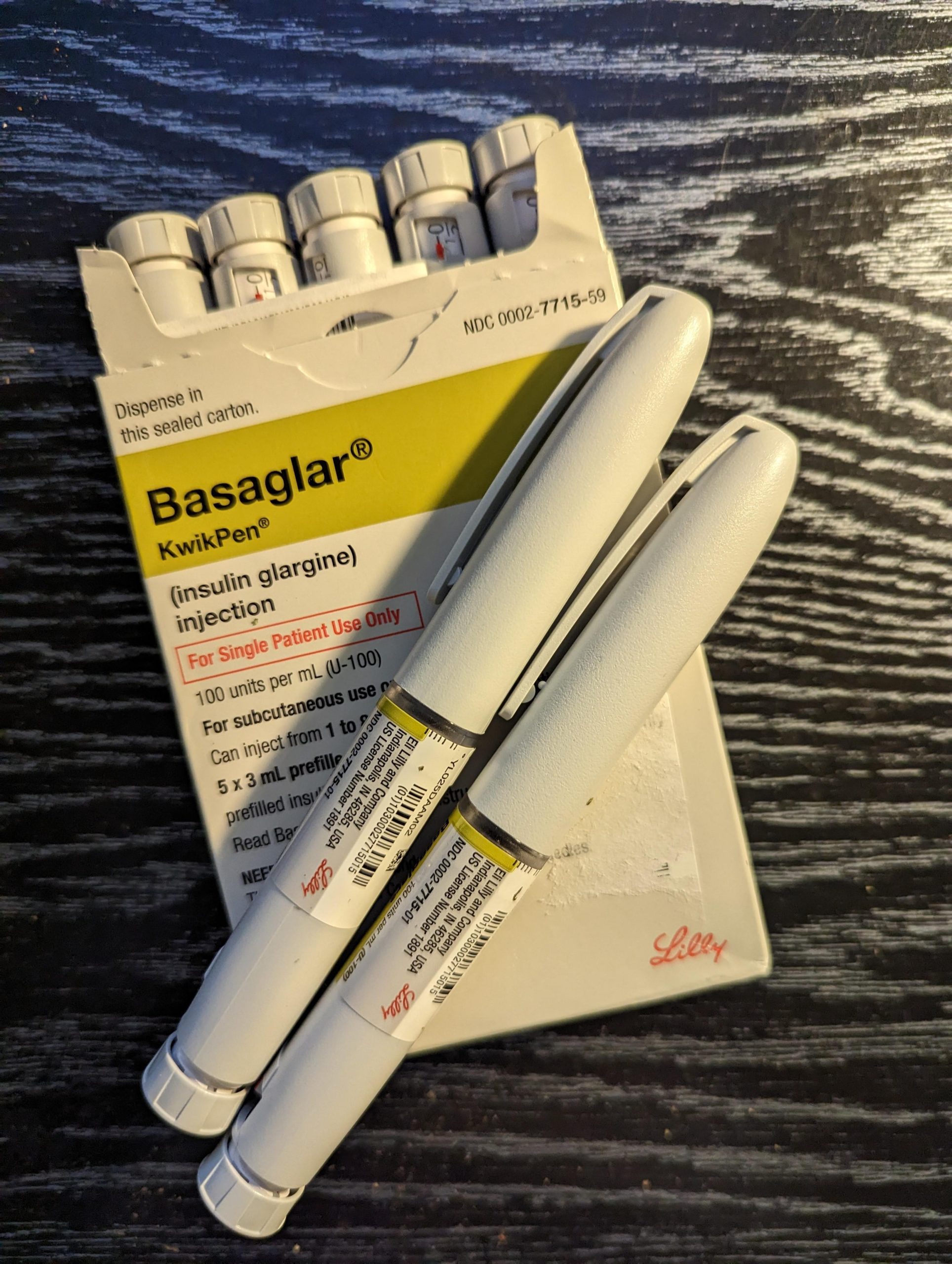 image source: reddit
image source: reddit
For those with diabetes or insulin resistance, addressing the lack of insulin is crucial. Follow prescribed insulin regimens, and work closely with healthcare professionals to ensure proper dosage and timing. Regular monitoring of blood sugar levels is essential to adjust insulin doses as needed. This also goes for any people who might have issues with their pancreas!Advertisement
Dehydration
 image source: reddit
image source: reddit
Staying well-hydrated is key to supporting kidney function and promoting the removal of excess glucose from the bloodstream. Ensure you drink an adequate amount of water throughout the day, and limit consumption of dehydrating beverages like caffeinated or sugary drinks. Try to make sure you are always carrying around that water bottle everywhere you go!Advertisement
Getting Older
 image source: reddit
image source: reddit
As individuals age, maintaining a healthy lifestyle becomes increasingly vital for managing blood sugar levels. Regular exercise, a balanced diet, and consistent monitoring are crucial. Consult with healthcare professionals to tailor a plan that suits your age-related health needs. there is absolutely no shame in having to admit that you might be getting on a bit!Advertisement
Excess Weight Gain
 image source: reddit
image source: reddit
Effective weight management is a cornerstone of blood sugar control. Adopting a balanced diet and engaging in regular physical activity can help shed excess weight, improve insulin sensitivity, and promote better glucose regulation. There's very little that introducing some exercise in to your daily routine won't help. try and get yourself outside a little!Advertisement
Skipping Meals
 image source: reddit
image source: reddit
To avoid erratic blood sugar levels resulting from skipped meals, prioritize regular, balanced meals and snacks throughout the day. Include a mix of complex carbohydrates, lean proteins, and healthy fats to provide sustained energy and stabilize blood sugar. We should all know how important maintaining a balanced and stable diet can be for the body by now!Advertisement
Smoking
 image source: reddit
image source: reddit
Quitting smoking is a powerful step in reducing blood sugar levels and improving overall health. Smoking contributes to insulin resistance and increases the risk of complications for individuals with diabetes. Seek support from healthcare professionals or smoking cessation programs for effective strategies to quit. Consult a doctor if you're really struggling to do so.Advertisement
Eating Processed Foods
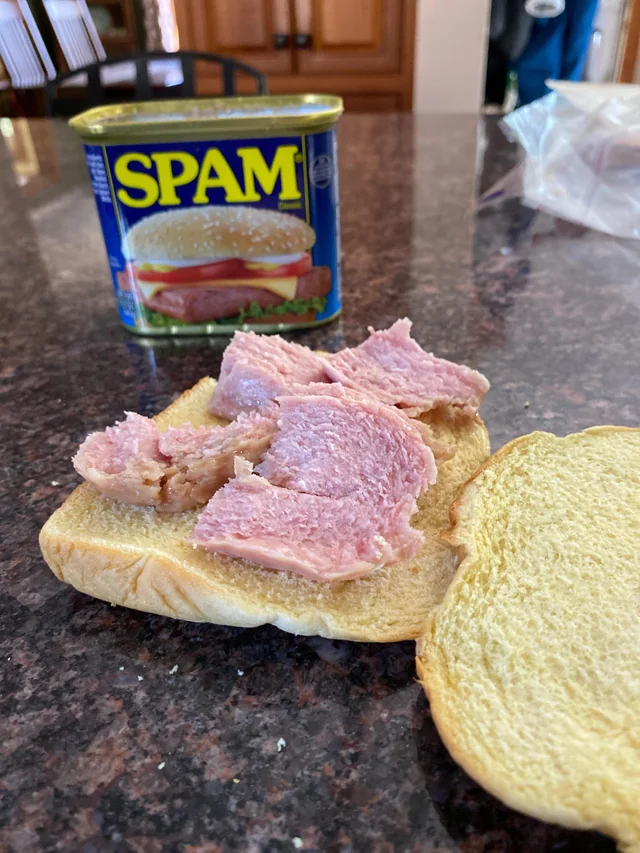 image source: reddit
image source: reddit
Limiting the intake of processed foods, especially those high in refined sugars, is essential for blood sugar management. Opt for whole, nutrient-dense foods that have a lower impact on blood glucose levels. Read labels carefully and choose foods with minimal additives and preservatives. It can be difficult and more expensive but you'll thank yourself in the long term.Advertisement
Using Artificial Sweeteners
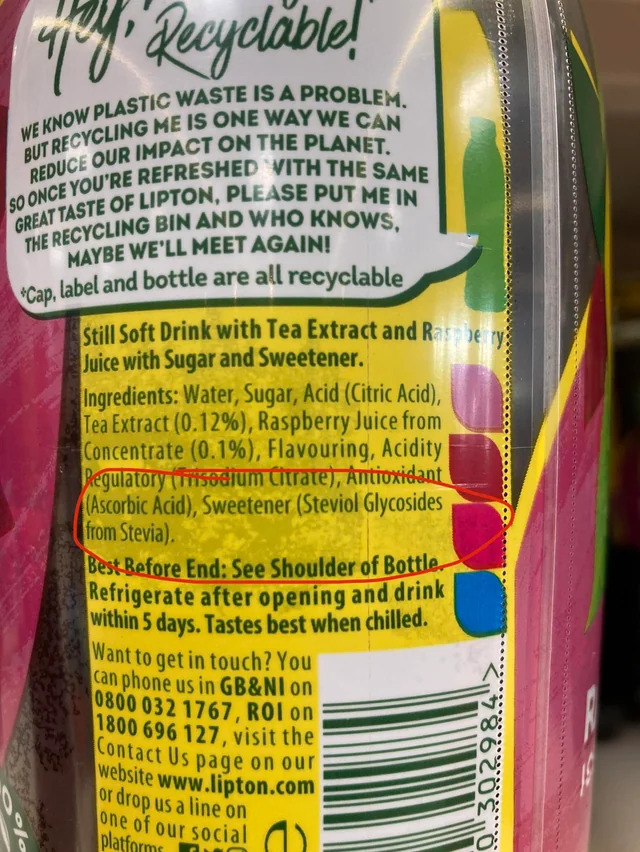 image source: reddit
image source: reddit
While artificial sweeteners may seem like a sugar-free alternative, they can still influence insulin response. Consider reducing reliance on artificial sweeteners and explore natural alternatives like stevia or moderation in using traditional sweeteners to help regulate blood sugar more effectively. You should try and stick to these natural alternatives instead!Advertisement
Dental Problems

image source: reddit
Maintaining good oral health is crucial for individuals managing blood sugar. Addressing dental problems, especially gum infections, can reduce inflammation and improve insulin sensitivity. Regular dental check-ups, proper oral hygiene practices, and a balanced diet contribute to overall health and blood sugar control. We should all be visiting the dentists regularly enough!Advertisement
Be Careful To Not Lower Them Too Much. Here's What Could Happen If You Do! Dizziness
 image source: reddit
image source: reddit
Experiencing low blood sugar levels, also known as hypoglycemia, can lead to various alarming symptoms, with dizziness being a common manifestation. When blood sugar drops below the normal range, the brain is deprived of its primary source of energy, glucose. This lack of fuel can result in dizziness as the brain struggles to function optimally.Advertisement
Fainting
 image source: reddit
image source: reddit
Severe cases of low blood sugar can escalate to the point of fainting. When glucose levels plummet, the brain's function is significantly impaired, leading to a loss of consciousness. Fainting is a critical sign that immediate intervention is needed to raise blood sugar levels and prevent further complications. You can use some of the various techniques listed above!Advertisement
Blurred Vision

image source: reddit
Hypoglycemia can affect the eyes, causing blurred vision. Insufficient glucose to nourish the optic nerves can result in temporary vision problems. Individuals may experience difficulty focusing, seeing clearly, or maintaining visual acuity. Resolving low blood sugar promptly is crucial to restore normal vision and prevent potential accidents or injuries associated with impaired sight.Advertisement
Fatigue
 image source: reddit
image source: reddit
Low blood sugar levels can induce a profound sense of fatigue and weakness. As the body struggles to function without an adequate glucose supply, energy levels drop, leading to feelings of exhaustion. This fatigue can impact daily activities, making it challenging to perform tasks that require physical or mental effort. Life can become a little bit of a slog in incidents like this!Advertisement
Difficulty Concentrating
 image source: reddit
image source: reddit
The brain's reliance on glucose makes it particularly vulnerable during episodes of low blood sugar. Difficulty concentrating is a common cognitive symptom, as the brain struggles to maintain focus and process information efficiently. This can affect work, school, or any activity that demands mental acuity, underscoring the need for prompt resolution of hypoglycemic episodes.Advertisement
Vomiting
 image source: reddit
image source: reddit
In severe cases of hypoglycemia, the body may respond with nausea and vomiting. This can further exacerbate the depletion of nutrients and lead to dehydration, posing additional health risks. Vomiting is a sign that immediate medical attention is necessary to address the underlying cause and restore stable blood sugar levels. No one wants to be left throwing up!Advertisement
Breathlessness
 image source: reddit
image source: reddit
Low blood sugar levels can also contribute to a sense of breathlessness or shortness of breath. This may be a result of the body's response to stress, as hypoglycemia activates the release of certain hormones that can affect respiratory function. Addressing the root cause and restoring glucose balance is crucial to alleviate this symptom.Advertisement
Chest Pains
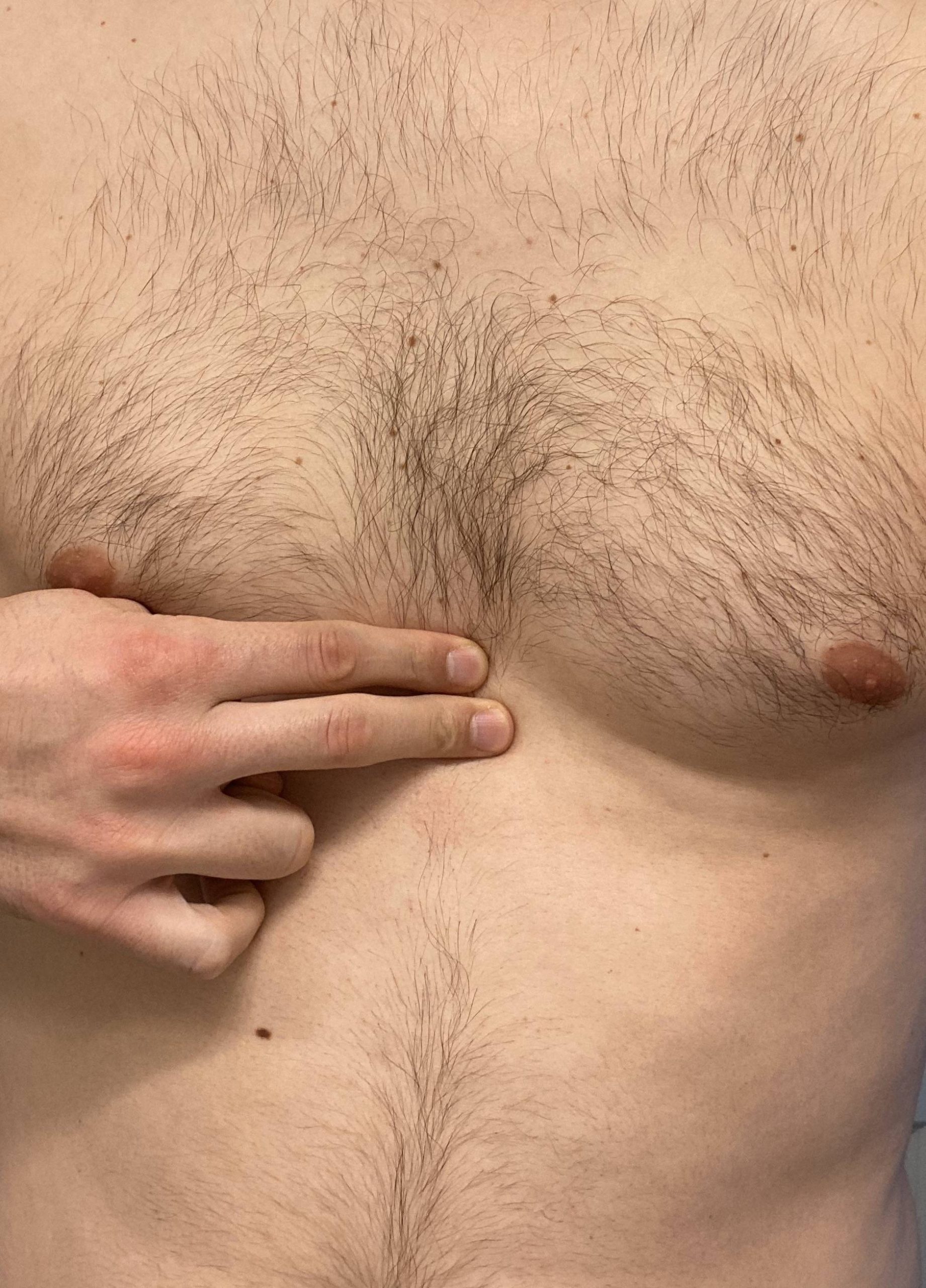 image source:reddit
image source:reddit
In some cases, hypoglycemia may manifest with chest pains, mimicking symptoms of more serious cardiac issues. While these chest pains are usually not indicative of heart problems, they underscore the importance of not ignoring low blood sugar symptoms. Seeking medical attention is essential to rule out any potential complications and address the hypoglycemic episode effectively.Advertisement
Cold Skin
 image source: reddit
image source: reddit
Low blood sugar can impact circulation, leading to sensations of coldness in the skin. This occurs as the body redirects blood flow to vital organs, leaving extremities susceptible to temperature changes. Cold skin is a physical manifestation of the body's stress response to low blood sugar levels.Advertisement
Depression
 image source: reddit
image source: reddit
Prolonged or recurrent episodes of low blood sugar can contribute to mood disturbances, including feelings of depression. The brain's sensitivity to glucose fluctuations can influence neurotransmitter levels, potentially affecting mood regulation. Managing blood sugar levels effectively is crucial not only for physical well-being but also for mental and emotional health.Advertisement
Reduced Kidney Function
 image source: reddit
image source: reddit
Chronic hypoglycemia may have long-term consequences on kidney function. The kidneys play a crucial role in filtering waste from the blood, and prolonged exposure to low blood sugar levels can affect their ability to function optimally. Regular monitoring of blood sugar and adopting a proactive approach to managing diabetes or other underlying causes is essential to prevent complications such as reduced kidney function.Advertisement
Shock
 image source: reddit
image source: reddit
In extreme cases, persistent low blood sugar levels can lead to a state of shock. Shock is a life-threatening condition where the body's vital organs do not receive enough oxygen and nutrients to function properly. As blood sugar continues to drop, the body's ability to maintain normal bodily functions is compromised, and the individual may experience a profound state of shock.Advertisement
Compromised Immune System
 image source: reddit
image source: reddit
Chronic hypoglycemia can weaken the immune system, making individuals more susceptible to infections and illnesses. The immune response relies on energy derived from glucose, and when blood sugar is consistently low, the body's ability to mount an effective defense against pathogens is compromised. Maintaining stable blood sugar levels is essential for supporting a robust immune system and overall health.Advertisement
Hormonal Problems
 image source: reddit
image source: reddit
Low blood sugar levels can disrupt the delicate balance of hormones in the body. Hormones play a crucial role in regulating various physiological processes, and fluctuations due to hypoglycemia can lead to hormonal imbalances. This can affect reproductive health, growth, and other vital functions, emphasizing the importance of addressing and managing blood sugar levels.Advertisement
Slowed Heart Rate
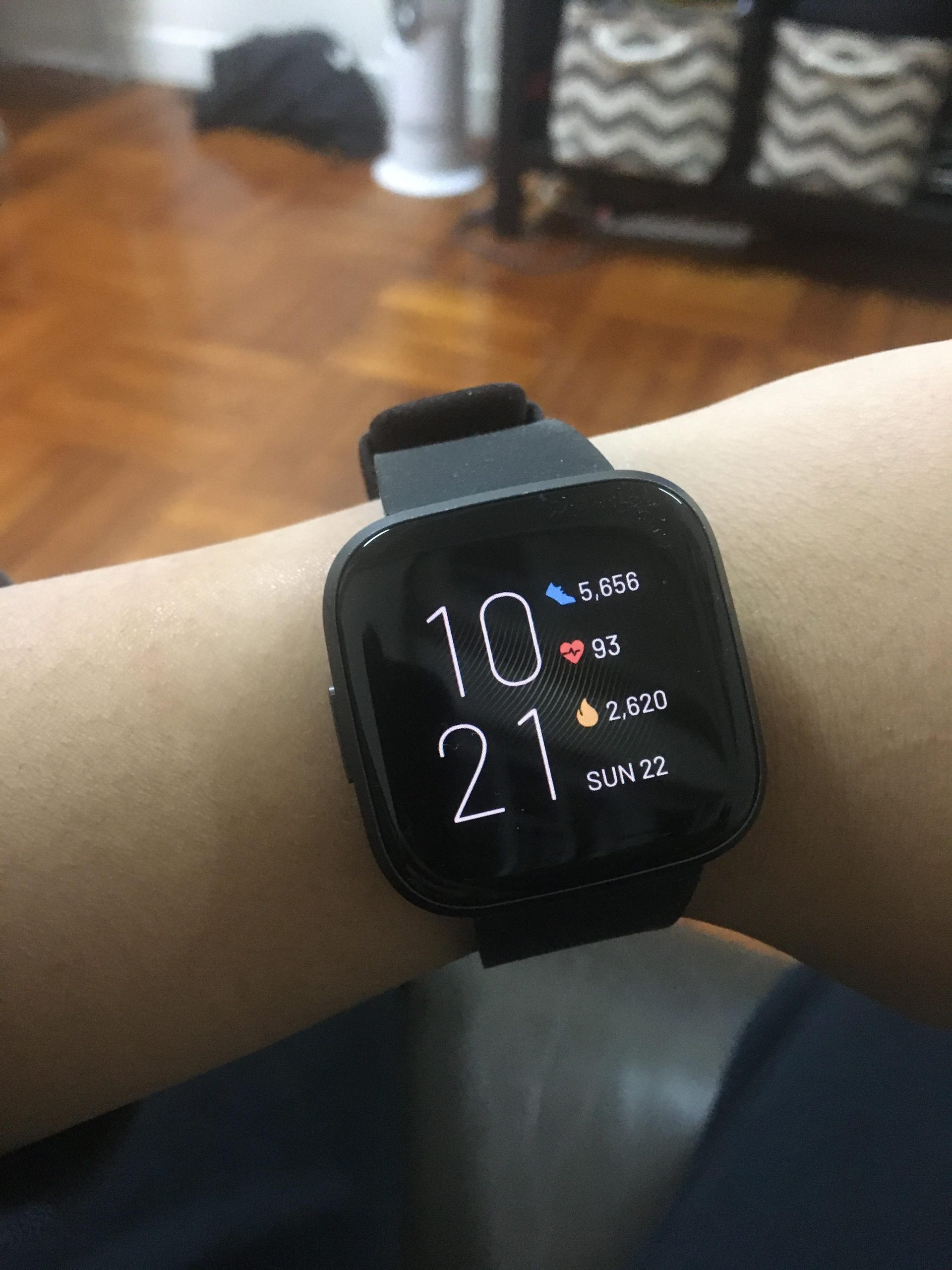 image source: reddit
image source: reddit
Hypoglycemia can impact the cardiovascular system, leading to a slowed heart rate or bradycardia. As the body struggles to cope with low glucose levels, the heart may not pump blood as efficiently. This can result in dizziness, fatigue, and other cardiovascular symptoms. Maintaining optimal blood sugar levels is essential for supporting a healthy heart rate and preventing complications.Advertisement
Risk of Stroke
 image source: reddit
image source: reddit
Prolonged or severe hypoglycemia may increase the risk of stroke. The brain is highly sensitive to changes in blood sugar, and inadequate glucose supply can lead to neurological issues, including an increased risk of stroke. Managing blood sugar effectively is crucial for reducing the risk of vascular complications and promoting overall cardiovascular health.Advertisement
Fetal Complications
 image source: reddit
image source: reddit
For pregnant individuals, low blood sugar can pose risks to the developing fetus. Inadequate glucose supply can impact fetal growth and development, potentially leading to complications such as low birth weight or developmental issues. Pregnant individuals with diabetes or those at risk for hypoglycemia should receive specialized medical care to manage blood sugar levels and mitigate potential fetal complications.Advertisement
Memory Problems
 Image Source: Reddit
Image Source: Reddit
Advertisement
Osteoporosis

image source: reddit
Chronic low blood sugar levels can contribute to bone health issues, including the risk of osteoporosis. Calcium metabolism, essential for bone strength, can be compromised when glucose levels are consistently low. Adequate nutrition, including proper calcium intake and maintaining stable blood sugar, is crucial for preventing bone density loss and related complications.Advertisement
Slowed Wound Healing

image source: reddit
Hypoglycemia can impede the body's natural healing processes, leading to slowed wound healing. Adequate glucose is necessary for cell repair and regeneration, and low blood sugar levels can delay the healing of injuries or wounds. Individuals with diabetes, in particular, should closely monitor and manage blood sugar levels to support optimal wound healing!Advertisement
Here Are Some Foods You Should Avoid To Stop Raising Your Blood Sugar Levels! White Bread
 image source: reddit
image source: reddit
White bread, while a staple for many, can significantly contribute to elevated blood sugar levels. It has a high glycemic index, meaning it quickly raises blood sugar after consumption. The refining process removes much of the fiber and nutrients found in whole grains, leaving a product that is rapidly converted into glucose in the body.Advertisement
Sugary Cereals
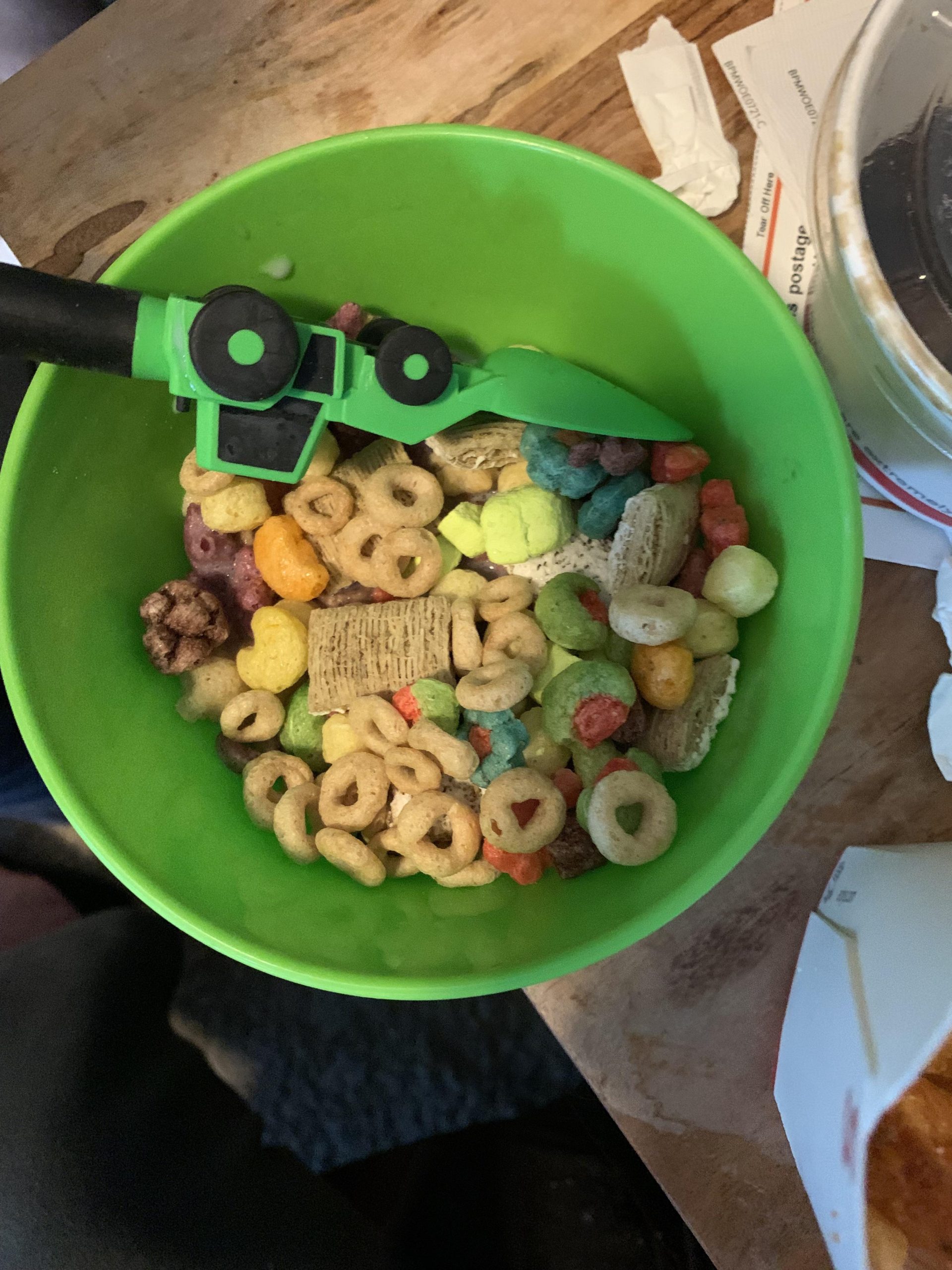 image source: reddit
image source: reddit
Sugary cereals are often loaded with refined sugars and lack the necessary fiber to slow down the absorption of carbohydrates. Starting your day with these cereals can lead to a rapid spike in blood sugar, followed by a crash, leaving you feeling fatigued and craving more sugar. Choosing whole-grain, low-sugar cereals or incorporating oats and fresh fruits into your breakfast can provide sustained energy without causing drastic fluctuations in blood sugar levels.Advertisement
Sodas
 image source: reddit
image source: reddit
Regular sodas are one of the prime culprits for elevated blood sugar levels due to their high sugar content. The rapid influx of added sugars, such as sucrose or high-fructose corn syrup, can lead to a quick spike in blood glucose levels. Additionally, the lack of fiber in sodas fails to offset the rapid absorption of sugars. Opting for water, herbal teas, or sparkling water with a splash of natural flavoring is a healthier alternative to help maintain stable blood sugar levels.Advertisement
Fruit Juices
 image source: reddit
image source: reddit
While fruit juices may seem like a wholesome choice, they often contain concentrated amounts of sugar without the beneficial fiber found in whole fruits. The rapid absorption of fruit juice sugars can lead to a spike in blood glucose levels. Consuming whole fruits or diluting fruit juices with water can be a more balanced option, providing essential nutrients along with the fiber needed to moderate the impact on blood sugar.Advertisement
Candy

image source: reddit
Candy, with its high sugar content and minimal nutritional value, can cause a rapid and significant increase in blood sugar levels. The simple sugars found in candy are quickly absorbed, leading to a spike in glucose followed by a subsequent crash. Snacking on healthier alternatives like nuts, seeds, or fresh fruits can satisfy sweet cravings without the detrimental impact on blood sugar levels.Advertisement
Honey

image source: reddit
While often perceived as a natural sweetener, honey is high in fructose and glucose, making it a potent contributor to elevated blood sugar levels. Though it contains some antioxidants and beneficial compounds, its impact on blood sugar is similar to that of table sugar. Moderation is key, and individuals managing blood sugar should be cautious when using honey as a sweetener.Advertisement
Pancakes
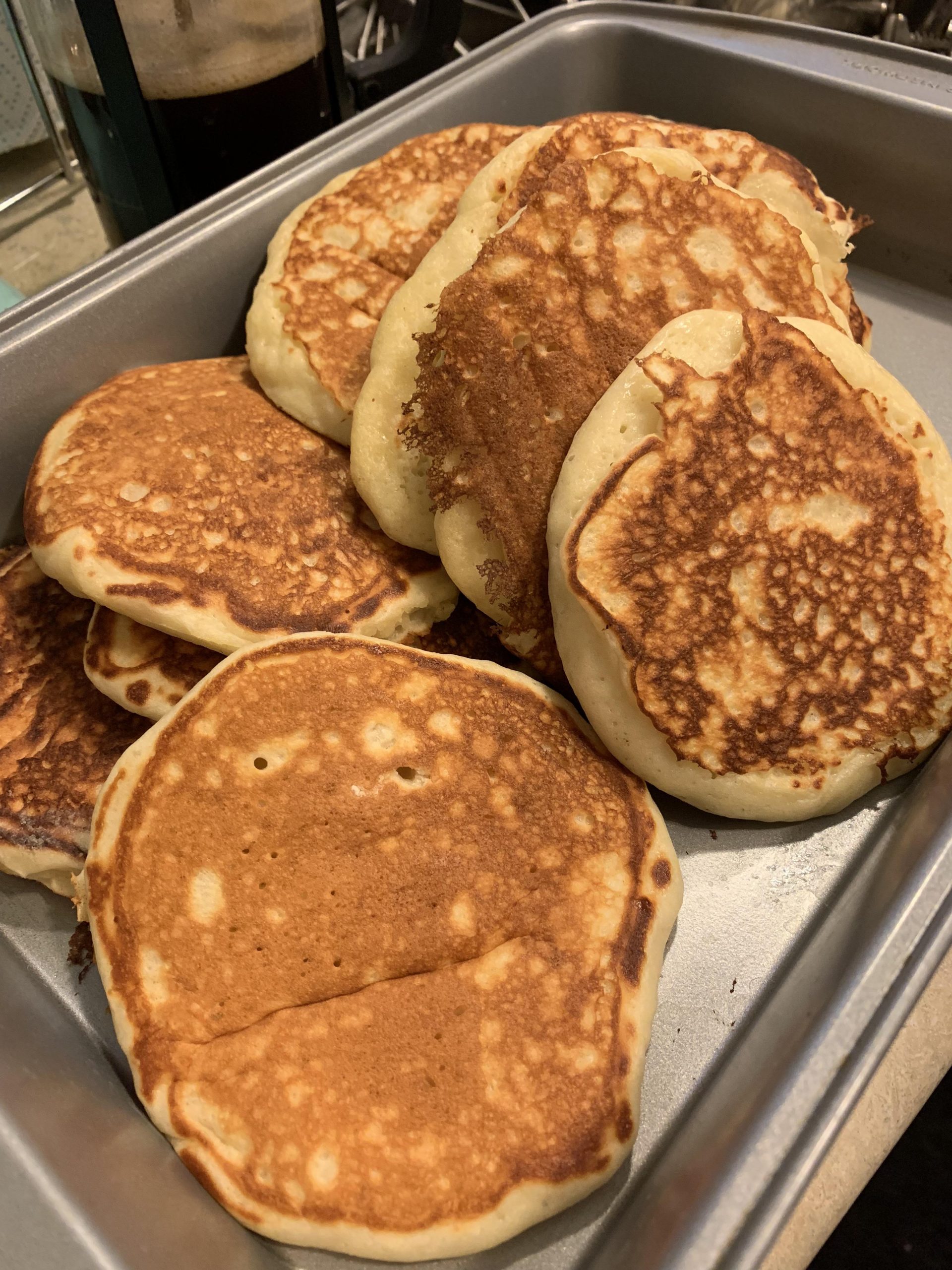 image source: reddit
image source: reddit
Classic breakfast favorites like pancakes, especially when made with refined flour, can cause a rapid increase in blood sugar levels. The lack of fiber and the quick digestion of refined carbohydrates contribute to this effect. Opting for whole grain or alternative flour options, like almond or coconut flour, can offer a lower-glycemic alternative.Advertisement
Pasta
 image source: reddit
image source: reddit
Refined pasta is another high-glycemic food that can lead to spikes in blood sugar levels. The rapid digestion of the starches in pasta causes a quick release of glucose into the bloodstream. Choosing whole grain or legume-based pasta provides more fiber, slowing down the absorption of carbohydrates and helping to maintain more stable blood sugar levels.Advertisement
Sweetened Yogurt

image source: reddit
Flavored or sweetened yogurts often contain added sugars that can contribute to elevated blood sugar levels. These sugars, when consumed without the balancing effect of fiber, can lead to rapid spikes in glucose. Opting for plain, unsweetened yogurt and adding fresh fruits or a drizzle of honey in moderation can offer a healthier alternative with less impact on blood sugar.Advertisement
White Rice
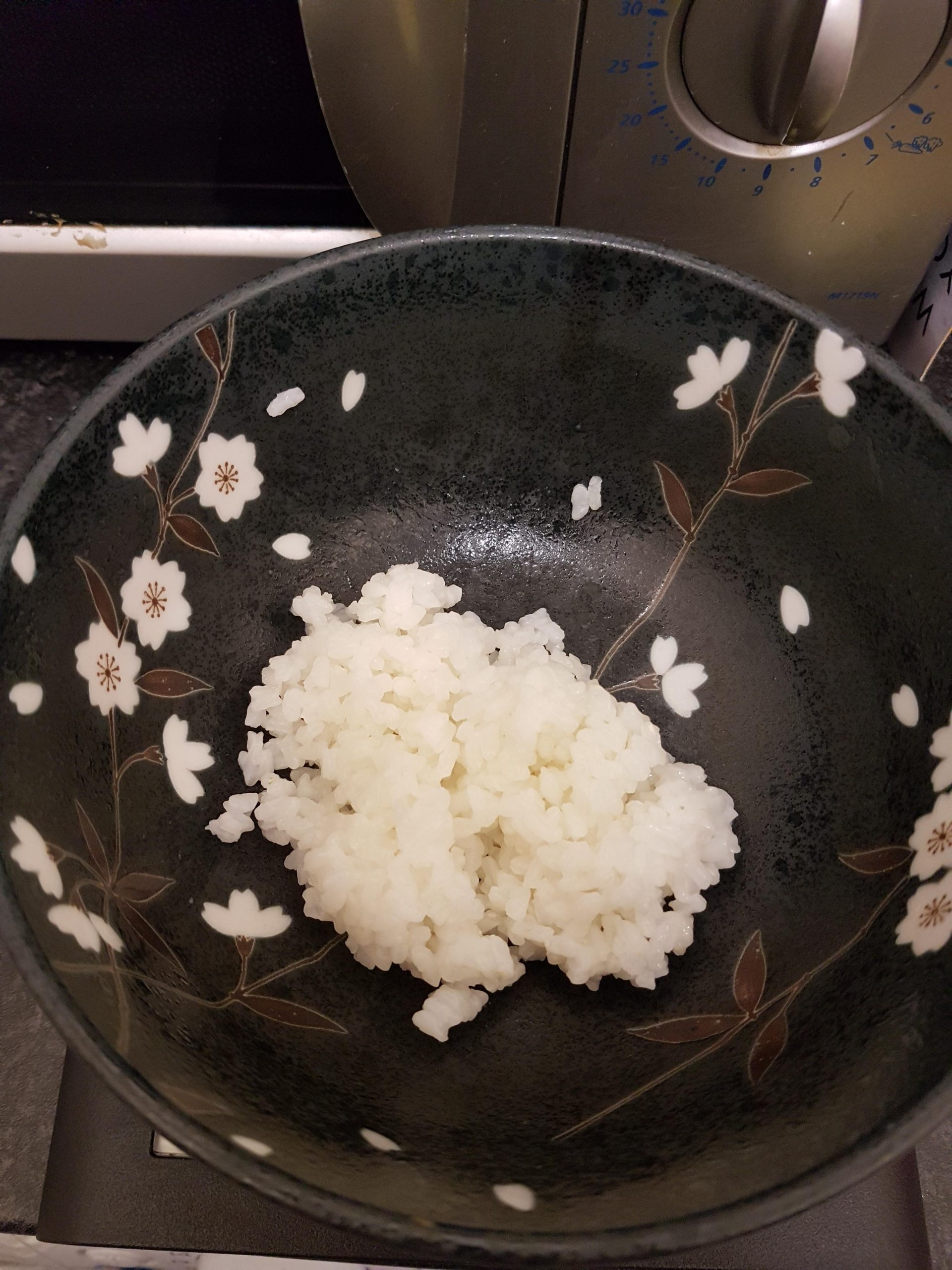 image source: reddit
image source: reddit
Similar to white bread, white rice has a high glycemic index and can cause a rapid increase in blood sugar levels. The refining process removes much of the fiber and nutrients, leaving a starch that is quickly converted into glucose. Choosing brown rice, quinoa, or other whole grains provides more fiber and nutrients, helping to slow down the absorption of carbohydrates and support better blood sugar control.Advertisement
Flavoured Oatmeal Packets
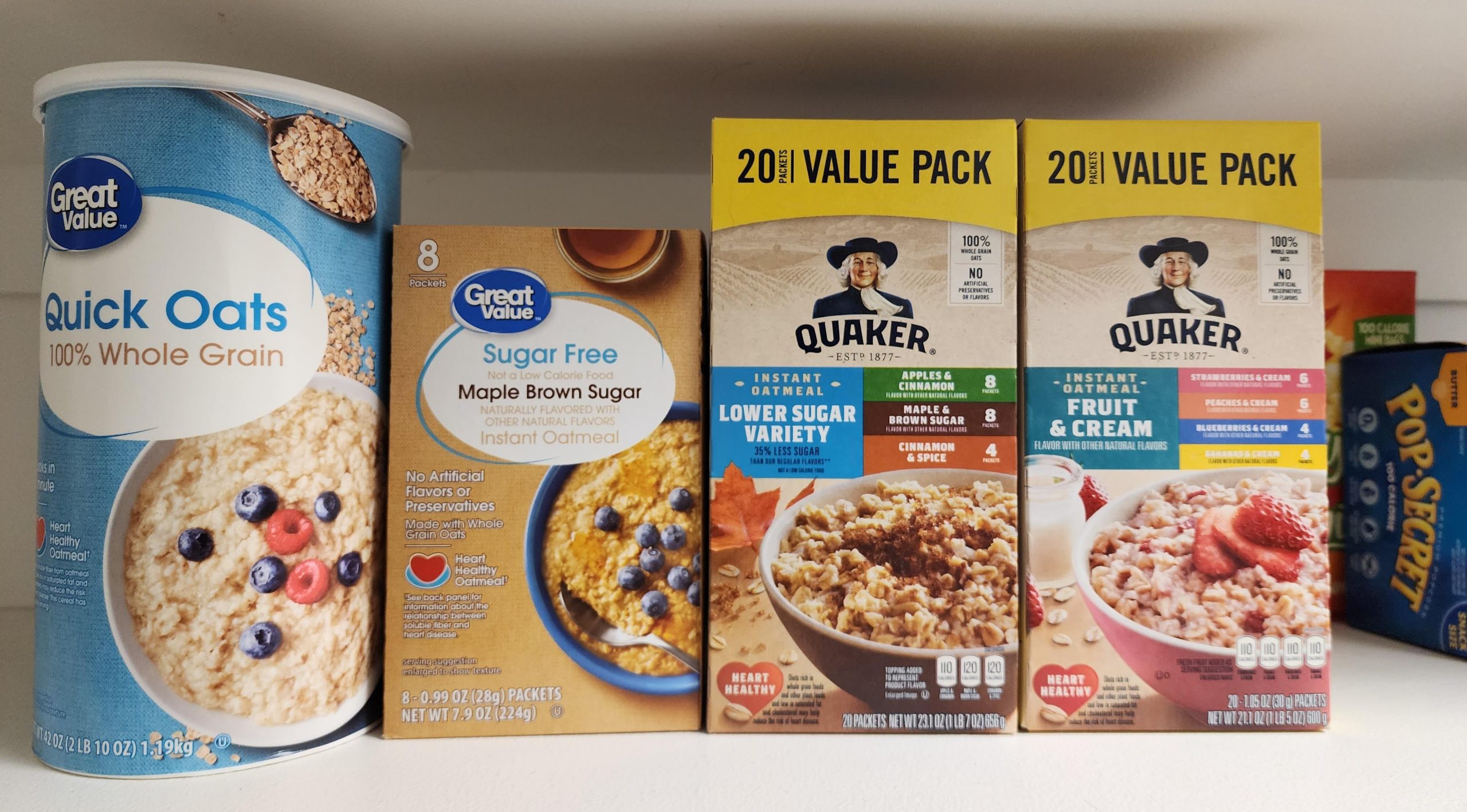 image source: reddit
image source: reddit
Flavored oatmeal packets, although convenient, often contain added sugars and artificial flavorings that can lead to a spike in blood sugar levels. These additions compromise the nutritional value of oats, transforming a potentially healthy breakfast into a high-glycemic meal. Opting for plain, steel-cut, or rolled oats and adding natural flavorings such as fresh fruit or a sprinkle of cinnamon provides a more wholesome alternative!Advertisement
Sweetened Alcohol

image source: reddit
Alcoholic beverages that are sweetened with sodas, juices, or syrups can contribute to elevated blood sugar levels. The sugars in these mixers can quickly raise glucose levels, particularly for individuals with diabetes or those managing their blood sugar. You might want to consider just cutting out alcohol in general to find a healthy and stable way to live your life!Advertisement
Canned Foods
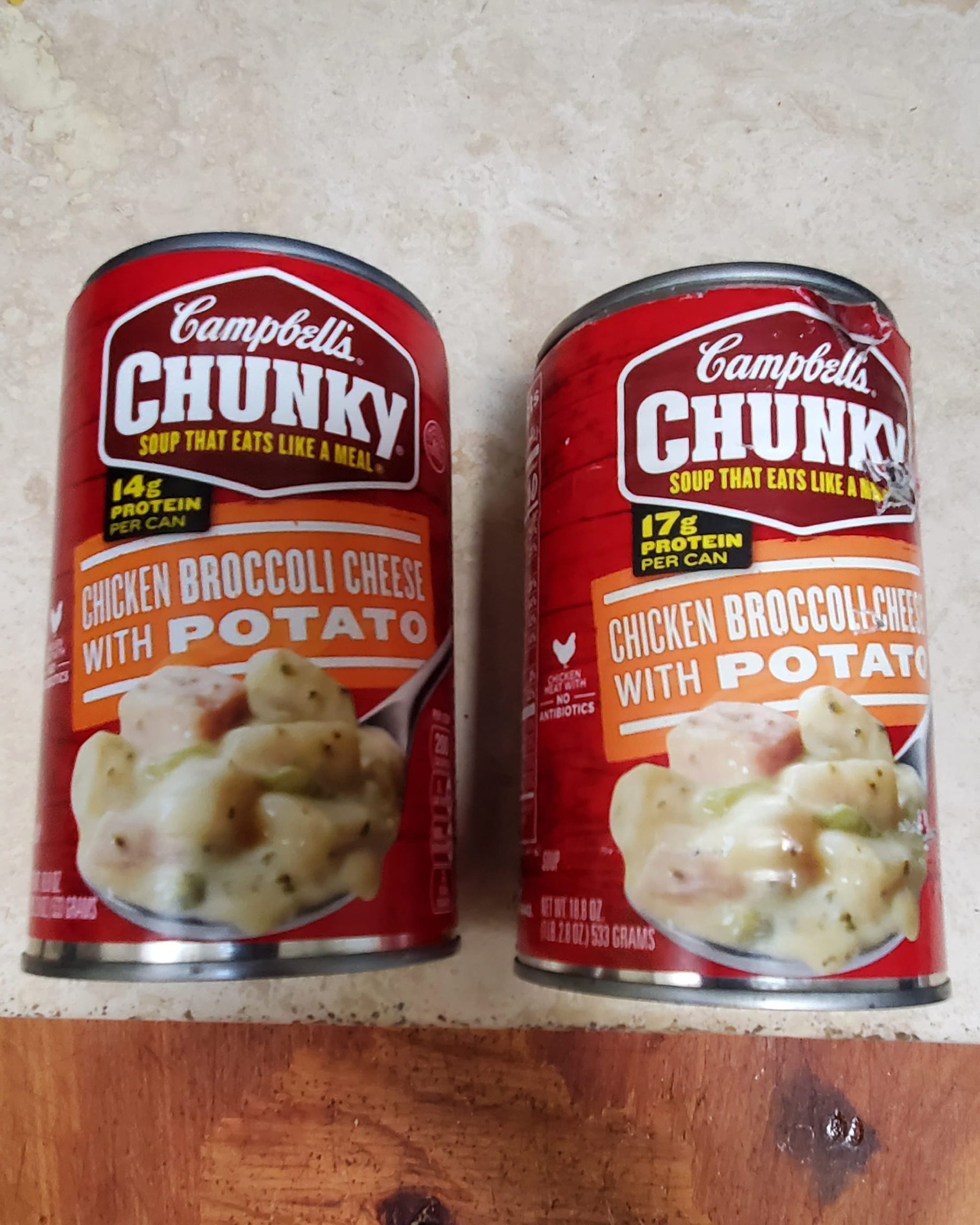 image source: reddit
image source: reddit
Canned foods, especially those with added sauces or syrups, may contain hidden sugars that can affect blood sugar levels. Opting for fresh or frozen vegetables and choosing canned items with no added sugars or opting for those preserved in water can be a wiser choice. You'll enjoy the taste of some fresh food much more than you would this canned food anyway!Advertisement
Snack Bars

image source: reddit
Many commercially available snack bars, despite being marketed as healthy, can be loaded with sugars, preservatives, and refined carbohydrates. These ingredients contribute to a rapid increase in blood sugar levels. Opting for homemade or carefully selected snack bars with minimal added sugars, whole grains, and protein can provide a satisfying and nutritious alternative!Advertisement
Sweetened Peanut Butter
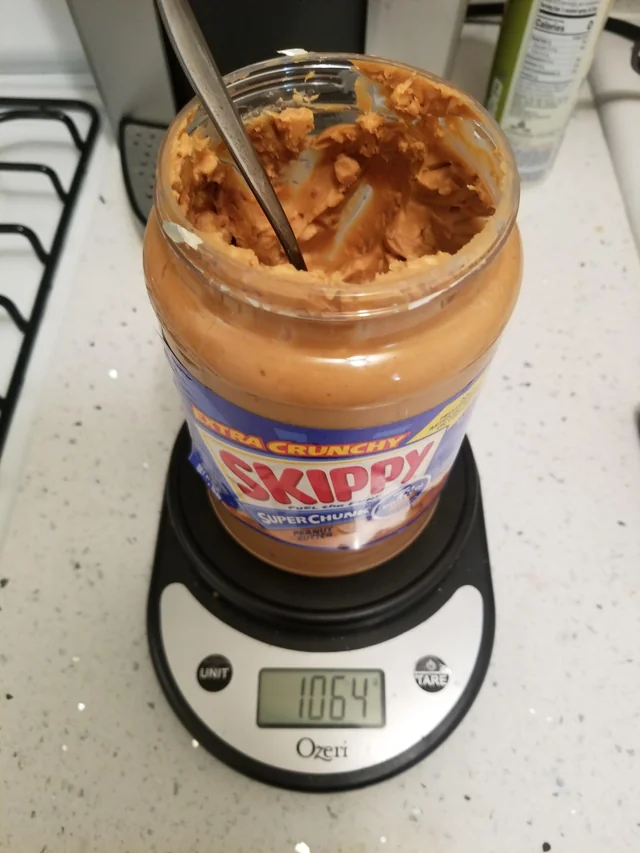 image source: reddit
image source: reddit
Sweetened peanut butter varieties often contain added sugars, which can turn a nutritious spread into a source of hidden sugars. Opting for natural peanut butter without added sugars or making nut butter at home allows individuals to enjoy the benefits of healthy fats and proteins without the detrimental impact on blood sugar levels.Advertisement
Fast Food
 image source: reddit
image source: reddit
Fast food is notorious for its high levels of refined carbohydrates, unhealthy fats, and added sugars, all of which can lead to a rapid spike in blood sugar levels. Regular consumption of fast food is linked to various health issues, including obesity and diabetes. We all deserve to treat ourselves sometimes, but making yourself a fresh meal at home will definitely be healthier!Advertisement
Potato Chips
 image source: reddit
image source: reddit
Potato chips, being a highly processed and often fried snack, can contribute to elevated blood sugar levels due to their high glycemic index. The rapid absorption of the starches in potatoes can lead to spikes in glucose. Opting for healthier alternatives like baked vegetable chips or air-popped popcorn can satisfy crunchy cravings!Advertisement
Coffee Creamers
 image source: reddit
image source: reddit
Flavored coffee creamers, especially those labeled as "sweetened" or "flavored," often contain added sugars and unhealthy fats. These ingredients can turn a simple cup of coffee into a sugary beverage that may impact blood sugar levels. Combined with the fact that coffee is already potentially damaging to your blood sugar levels this isn't the smartest idea!Advertisement
Frozen Dinners
 image source: reddit
image source: reddit
Frozen dinners, despite their convenience, often contain high levels of sodium, unhealthy fats, and added sugars. These processed meals can lead to a rapid increase in blood sugar levels. Opting for homemade meals or choosing frozen dinners with minimal processing and healthier ingredients can provide a more balanced alternative which is so much more fulfilling.Advertisement
Instant Noodles
 image source: reddit
image source: reddit
Instant noodles are a convenient but often highly processed and refined carbohydrate. The rapid digestion of these noodles can lead to a quick spike in blood sugar levels. Additionally, incorporating plenty of vegetables and lean proteins into noodle dishes can enhance their nutritional value. They might be useful sometimes but don't make them a regular part of your diet!Advertisement
The biggest causes of blood sugar swings: caffeine
 image source: reddit.com
image source: reddit.com
If you're a regular coffee drinker, this can be a main cause of blood sugar increase, and this counts even if you're having plain black coffee that doesn't have any calories in it, because it's all down to the caffeine. And because of the caffeine, it's also not just coffee that can increase your blood sugar - it can also be black tea, green tea or if you're drinking energy drinks.Advertisement
Eating sugar-free foods
 image source: reddit.com
image source: reddit.com
You might have been eating sugar-free food and snacks thinking that was an obvious way to not have your blood sugar levels change, but actually, sugar-free foods can still cause levels to rise due to the carbohydrates in the starch. Some may also contain sugar alcohols (like sorbitol and xylitol) which still have the potential to make your levels rise - so always check the label.Advertisement
Chinese food
 image source: reddit.com
image source: reddit.com
Chinese food can be one of the biggest culprits of increasing blood sugar levels because of the high fat content. While the white rice is an issue, it's not the only issue, as it can also be from the meat or sauce. It's not just Chinese food to blame though, as any food with high fat (like pizza or that side of french fries) will also likely increase your blood sugar levels.Advertisement
Catching a cold
 image source: reddit.com
image source: reddit.com
As if struggling through a cold or the flu wasn't annoying enough, it can also cause your blood sugar levels to increase, and that's because your body is working to fight off the illness. It can be difficult to attribute any high blood sugar symptoms to that because they're similar to cold symptoms, including high thirst and feeling tired all of the time.Advertisement
Being under constant stress
image source: reddit.com
We know that stress can cause havoc on the body, and one of the biggest sources of stress that causes blood sugar levels to rise is from a stressful job that you're working day in and day out. When you're stressed, your body releases hormones in response which makes your blood sugar levels rise - and you can imagine how bad that gets when you're that stressed all day, every day.Advertisement
Eating bagels
 image source: reddit.com
image source: reddit.com
Why are we targeting bagels specifically? We know they're delicious, but unlike other types of bread like sliced white or wholegrain bread, they have a ton more carbohydrates. One bagel will have more carbohydrates than one slice of bread. And, unsurprisingly, they have more calories. All of this can result in an increase in your body's blood sugar levels.Advertisement
Drinking sports drinks
 image source: reddit.com
image source: reddit.com
Sports drinks are helpful with vigorous workouts when you need to keep your body hydrated, but it's not good news for your blood sugar levels, and that's because these sports drinks often have just as much sugar as a can of soda. If you're only having a standard workout, make sure to drink water instead of sports drinks to stay hydrated and avoid blood sugar levels rising.Advertisement
Eating dried fruits
 image source: reddit.com
image source: reddit.com
Eating fruit in any shape of form is a healthy choice, but some varieties will have a different affect on the body than others. Eating dried fruit instead of fresh fruit, for example, will mean you're having more carbohydrates in a smaller portion of them, which could result in a rise in blood sugar levels. One small spoon of dried fruit can have the same amount of carbs as half a large, fresh fruit.Advertisement
Certain pills
 image source: nbcnews.com
image source: nbcnews.com
There are also a lot of pills that can increase your blood sugar levels, and this is something you might not realize when you need to take these pills as medication. Certain pills used to treat things like arthritis and rashes, called corticosteroids, can actually also increase blood sugar levels. Water pills used for high blood pressure can also result in higher levels of blood sugar.Advertisement
Medicines to treat a cold
 image source: reddit.com
image source: reddit.com
As well as a cold itself risking an increase in blood sugar levels, the medicines you take to treat a cold won't help either! Certain decongestants, which include pseudoephedrine or phenylephrine, can result in raised blood sugar levels. Certain cold medicines also come with sugar to make them taste better, as well as a small amount of alcohol in them, and these can both raise levels.Advertisement
Birth control pills
 image source: reddit.com
image source: reddit.com
Birth control pills can affect your body in many different ways, including hormones and your blood sugar levels, and it can be different for every person. People with existing conditions like diabetes should always check with their doctor first before taking birth control pills in terms of how it could affect your blood sugar levels. Types with estrogen can also affect how your body manages insulin.Advertisement
Doing chores around the house
image source: reddit.com
Doing household chores is one of the best ways for lowering blood sugar levels that you don't even realize! It's never a fun thing to do, but what it is giving us is consistent movement and exercise throughout the day. This fortunately means a lower blood sugar level. Chores like mowing the lawn and walking around to get groceries all count in a positive way.Advertisement
Eating yoghurt
 image source: reddit.com
image source: reddit.com
Yogurt is a great source of healthy bacteria for a healthy diet, and this in turn means help controlling your blood sugar levels. These probiotics also help to improve digestion. You need to be careful which yogurts you're having, though, as they aren't all the healthiest - some have added sugar and extras in them like fruit, which can all add to carb counting.Advertisement
Having a vegan diet
 image source: reddit.com
image source: reddit.com
Some studies have suggested that switching to a vegan diet can actually help people with diabetes, and this was down to better control of blood sugar levels and less of a need for insulin. This could be due to a higher fiber content in foods like beans and whole grains, but it's not for certain whether it directly helps diabetes or not to be a vegan. Big diet changes can affect people in different ways.Advertisement
Having cinnamon
 image source: reddit.com
image source: reddit.com
Cinnamon is a great for adding delicious flavor to things like baked goods or coffee, and because of this, you might think it's unhealthy. Actually, a sprinkling of cinnamon doesn't add any calories, salt or carbs, and it's been suggested in some studies it could actually help to lower blood sugar levels in people with type 2 diabetes, but it all depends on how an individual's body reacts to cinnamon.Advertisement
How well you're sleeping
 image source: reddit.com
image source: reddit.com
A good night's sleep, every night, is so important for your overall health, but did you know it can affect your blood sugar levels specifically? During sleep your blood sugar is also more likely to go down. For people with diabetes, this also means managing what they eat before bed or when they wake up to get levels back on track. Not only that, blood sugar levels can then rise first thing in the morning.Advertisement
Drinking alcohol
 image source: reddit.com
image source: reddit.com
Alcohol is one of the worst culprits for making your blood sugar rise and fall. At first, the high carb content of alcoholic drinks will make your blood sugar levels rise. But then these levels can drop again hours after drinking. This is also why it's so important to limit your drinks or know the maximum recommended a day for your gender and age. It also helps to drink with food!Advertisement
Hot temperatures
image source: buzzfeed.com
There are many things soaring hot temperatures do to our bodies when we're out and about - we all know that feeling of feeling weak, dizzy or dehydrated when it gets a bit much. It can also affect your blood sugar levels, too, as extreme heat can make it harder to control. You'd be much better staying in the house with the air con on than battling the heat outside!Advertisement
Hormones
image source: reddit.com
Blood sugar levels can often change at the same time hormones do, and one of the times that's most likely to happen is during the menstruation cycle and that time of the month. Any hormones changes make blood sugar levels harder to maintain. You can get a good idea of yours is changing by measuring your blood sugar levels at the same time as your cycle to see how it's being affected.Advertisement
Will eating less sugar help?
 image source: reddit.com
image source: reddit.com
When considering your blood sugar levels, most people thinking eating more sugar or less sugar is what it comes down to - but actually, eating less sugar or cutting it out altogether might not have the result you think! You don't have to give up sugar completely - blood sugar levels are more affected by a high amount of carbs. So eating sugar in small doses is usually okay!Advertisement
Advertisement




